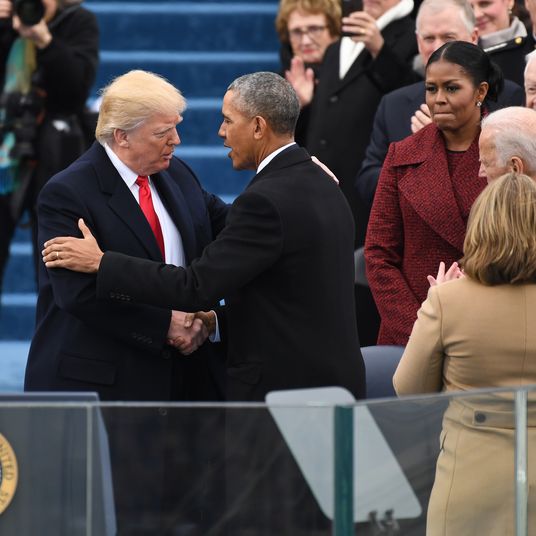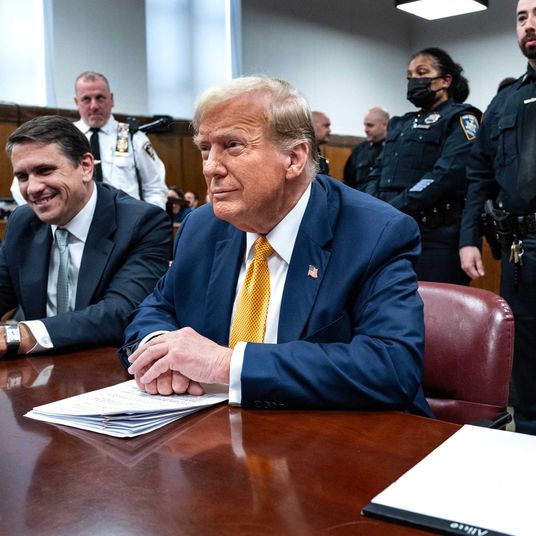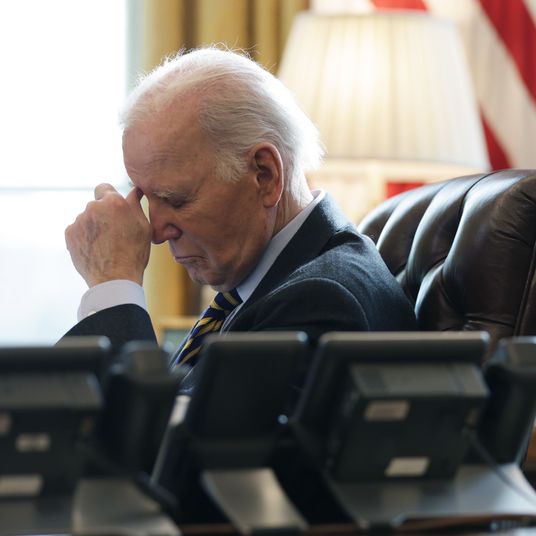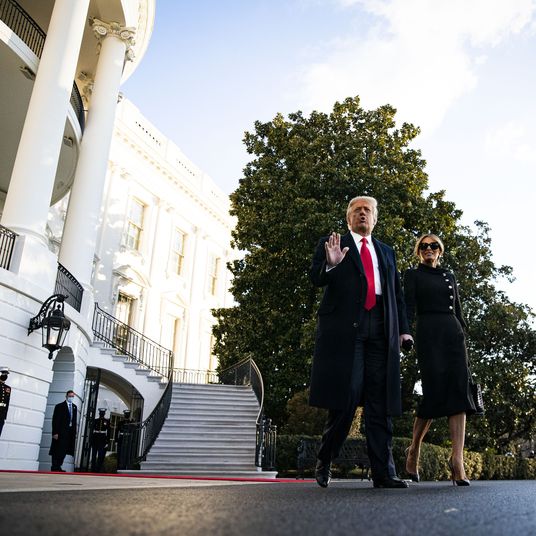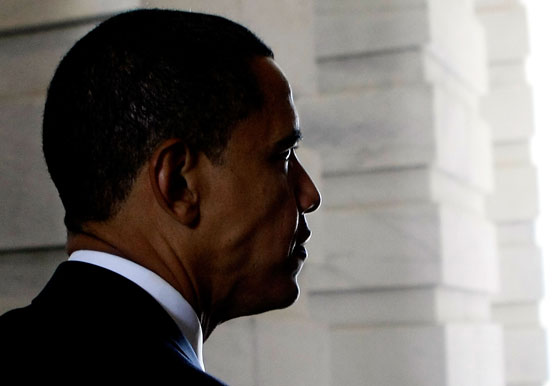
Photo: Getty
Now that Obama veep vetter Jim Johnson has resigned — after news broke that he’d taken … yawn … a favorable loan — the question becomes whether Obama will even be able to avoid tainting his platform of transformational reform with the business-as-usual politicians required in, you know, a presidential campaign. Will this simply be another instance of the superficial “outrage game,” a careless, “boneheaded move” by Obama, or part of a larger narrative that follows Obama throughout the election? Let’s go to the pundits!
• The Wall Street Journal editorial board says: Obama-dogging narrative. The responses to all his “ex-friends” are similar: “bad judgment followed by an initial defense, then followed by rapid disassociation and regret that none of them were the men Mr. Obama ‘knew.’” [WSJ]
• Jim Hoagland thinks that though this amounts to a “media scandal,” Obama’s initial response was “disingenuous” and “ungracious.” But he can’t continue to expect “the media and the public to accept just about any explanation he gives.” [WP]
• Gail Collins calls the decision to appoint Johnson when there are basically an unlimited number of qualified candidates an “unnecessary disaster.” But “one ridiculous decision doesn’t mean that Obama won’t be a good candidate.” [NYT]
• Michael Scherer says that there’s a danger getting caught up in the “press-release gotcha game.” Both campaigns know the point is “to create vague impressions in the minds of voters,” like “How can McCain be a reformer if he works with lobbyists?” or “Isn’t Obama a hypocrite for hiring such well-connected influence brokers?” But what matters is the differences between the candidates on the issues. [Time]
• John Broder and Leslie Wayne write that the story “highlights the difficulties for Mr. Obama’s campaign in trying to live up to his promises to remain independent of the Washington establishment and the special interests that populate it.” Johnson’s exit is “the latest example of the demonization of so-called Washington insiders” who also happen to provide “irreplaceable experience and insight.” [NYT]
• Chris Cillizza thinks this could be one of those dangerous stories that strikes at the core of a campaign’s narrative. Any questions voters have about Obama’s commitment “to breaking the alleged stranglehold lobbyists and other power brokers have over the political system is potentially disastrous.” It may also signal that Obama will be quick to give in when attacked by the Republican noise machine. [Fix/WP]
• Ben Smith believes the episode “highlights a risk” that Obama faces as his campaign incorporates more of the Democratic Party, many of whom “turned to lobbying and other private-sector pursuits during seven years of exile from the White House.” It also “opened a line of attack on Obama that appears likely to stay open.” [Politico]
• Andrew Romano thinks the entire Johnson flap (as well as the hubbub around McCain’s “not too important” line on troop withdrawal from yesterday) is nothing but manufactured outrage, created for purposes of “political point scoring” only. [Stumper/Newsweek]
• Marc Ambinder writes that the Johnson resignation was payback by the Republicans for all the McCain aides who had to resign because of their lobbying ties and part of a “war of attrition” that “saddens folks in both camps.” [Atlantic]
• Jay Carney wonders what happened to the “high-minded campaign we were promised.” [Swampland/Time] —Dan Amira
Related: Obama’s Veep Vetter Jim Johnson Steps Down After Controversy
Barack Obama Didn’t Vet His Vetter, But He Probably Should Have
For a complete and regularly updated guide to presidential candidates Hillary Clinton, Barack Obama, and John McCain — from First Love to Most Embarrassing Gaffe — read the 2008 Electopedia.








